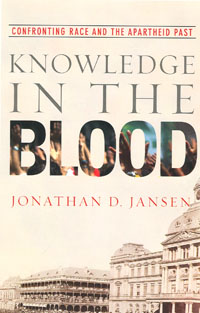Latest News Archive
Please select Category, Year, and then Month to display items
08 August 2023
|
Story EDZANI NEPHALELA
|
Photo EDZANI NEPHALELA
 Mbulelo Aven Jafta, Xhariep Municipality Corporate Services Director, and Dr Engela van Staden, Deputy Vice-Chancellor: Academic at the UFS, sign a memorandum of understanding to enrich various communities in the Xhariep Municipality areas through leadership training.
Mbulelo Aven Jafta, Xhariep Municipality Corporate Services Director, and Dr Engela van Staden, Deputy Vice-Chancellor: Academic at the UFS, sign a memorandum of understanding to enrich various communities in the Xhariep Municipality areas through leadership training.
The University of the Free State (UFS) has signed a memorandum of understanding with the South African Local Government Association (SALGA) and the Xhariep Municipality that is aimed at positively impacting communities through strategic partnerships. The organisations plan for their collaboration to make a significant difference by training 35 of their employees via the UFS Business School – 15 will undertake the Foundation Skills Short Learning Programme, and 20 the Bachelor’s degree in Management Leadership.
This joint effort will equip these employees with essential skills and knowledge and empower them to carry out their responsibilities efficiently and effectively. Rooted in the UFS’s Vision 130, this initiative fosters positive change within the community by enhancing social justice and innovation.
Dr Engela van Staden, Deputy Vice-Chancellor: Academic at the UFS, emphasised the university's dedication to human resource development and empowering individuals. “We were very excited when we got this engagement with you, and I hope it will be fruitful for you, because that’s the intention. We are also reaching out to other municipalities because we are doing it for our country, and the sooner we do it, the better the services you will deliver to people.”
Xhariep Municipality expressed gratitude for the collaboration, recognising its significance in empowering its employees. Mbulelo Aven Jafta, Corporate Services Director at the municipality, thanked the university for accepting the partnership. “As a municipality, we are interested in capacitating our employees to perform their duties optimally. It is through these partnerships that we reach our intended targets. This is the first two projects, and many more will be coming as our partnership progresses, and we intend to use this opportunity to the best of our abilities.”
Jafta said that such partnerships encourage a more interconnected and interdependent world. “As organisations work towards common goals, they create a ripple effect that can lead to a brighter and more promising future and play a vital role in shaping a positive and sustainable future.”
Knowledge in the blood
2009-08-05
| Knowledge in the blood |
|
 The book Knowledge in the blood, by Prof. Jonathan Jansen, Rector and Vice Chancellor, is available at a bookstore on the Thakaneng Bridge. The book Knowledge in the blood, by Prof. Jonathan Jansen, Rector and Vice Chancellor, is available at a bookstore on the Thakaneng Bridge.
Knowledge in the blood
Confronting race and the apartheid past
Professor Jonathan D. Jansen
978 1 91989 520 8
225 x 152mm
336 pages
Soft cover
May 2009
R250.00 (incl. VAT)
UCT Press
Southern African rights
This book tells the story of white South African students—how they remember and enact an Apartheid past. How is it that young Afrikaners, born at the time of Mandela’s release from prison, hold firm views about a past they never lived, rigid ideas about black people, and fatalistic thoughts about the future? Jonathan Jansen, the first black dean of education at the historically white University of Pretoria, was dogged by this question during his tenure, and Knowledge in the Blood seeks to answer it.
While Jansen originally set out simply to convey a story of how white students change under the leadership of a diverse group of senior academics, Knowledge in the Blood ultimately became an unexpected account of how these students in turn changed him.
“Brave, discerning, and deeply affecting. Bringing realism and rare moral generosity to the most difficult of conflicts, Jonathan Jansen illuminates the struggles faced by the inheritors of violence, as they move from pride and prejudice to a new and larger knowledge. An act of empathy as well as penetrating analysis, Knowledge in the Blood is an inspiring blueprint for thinking about social and personal transformation.”
—Eva Hoffman, author of After Such Knowledge
|
|
|